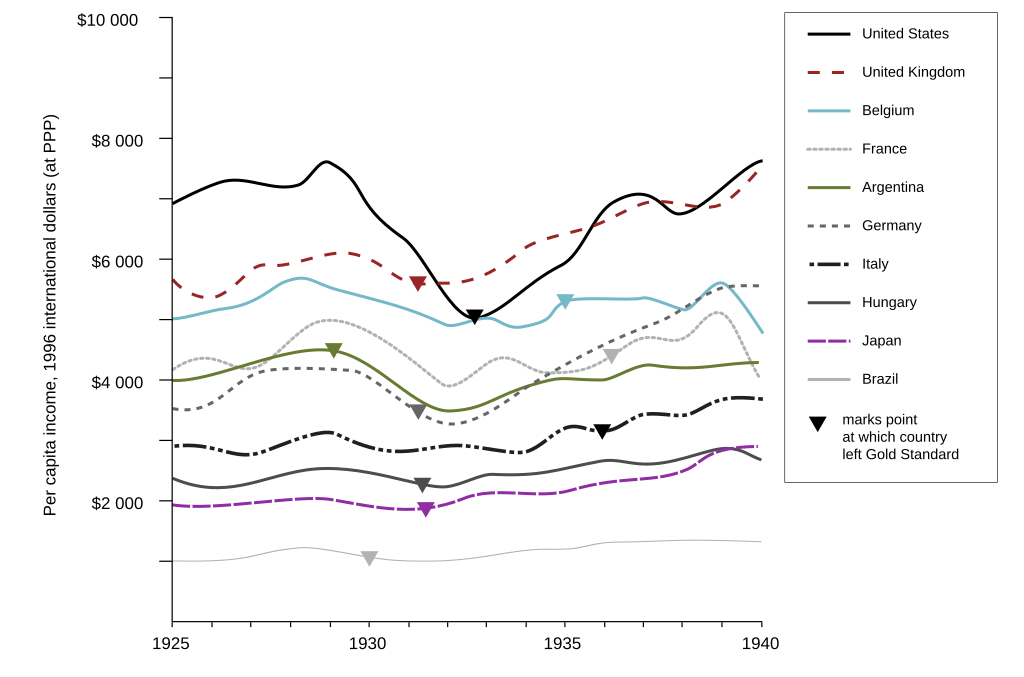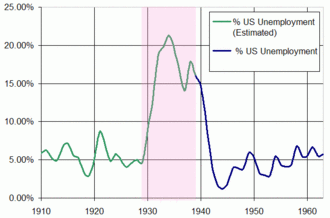- Joined
- Jun 3, 2009
- Messages
- 30,870
- Reaction score
- 4,246
- Gender
- Male
- Political Leaning
- Very Conservative
You'll have to point out at which period France invaded and occupied and then dissolved the German government, turning the entire territory that constituted Germany and all her people into a conquered nation.
France didn't need to fully invade Germany in WWI. The government fell and they were able to impose a harsh peace on Germany. Are you seriously arguing that the end of WWI wasn't effectively a conquered Germany?
Second, both Britain and France had by the 1930s expressed their desire to have Germany return to the common market to the point that they even suspended payments of reparations.
Therefore what? The rearmament program wasn't such that Germany was by far the leading military power of Europe. France was about on par, at least in terms of personnel. The Germans were lucky that France fell as quickly as it did, or else they would have had another WWI stalemate on their hands.
Comprehensive financial reform that didn't destroy the mainstay of the of the American economy and then required the mass persecution of an entire segment of the population in order to steal money from private savings in order to finance military expenditures.
National Socialist economics (not rearmament) requires persecution of a small minority of the population?
Except for the people who just weren't counted on the employment rolls. Funny how you keep leaving that out.
Because these weren't significant numbers!
Because basically all you're doing is grasping at a handful of statistics and arguing that's all the information you need and then ignoring everything else. A healthy German economy doesn't require the government to steal money from retirement funds and local governments, which the Reich did. Good economic policies don't force the government to ban private construction, institute wages restrictions and price controls, ban people from carrying currency outside the country, or force banks to buy bonds under threat of retribution. Good economic policies don't undermine the foundation of the national economy and cause a currency crisis, but there are all things that happened and you want me to ignore them in favor of your narrative.
The Nazis inherited an economic disaster in the early 1930's. They weren't going to turn it around overnight. The US still had significant numbers of bank failures even up to the 1940s.

[quote... Though the inflationary spike could still be broken, this involved risks. An excessively sharp reduction in the volume of credit could easily turn the difficult transition into a disastrous ‘deflationary crisis’. Instead, the Reichsbank proposed to drain off excess purchasing power by issuing long-term bonds, enabling the Finance Ministry to consolidate its precarious budgetary situation. More importantly, however, there was an urgent need to ensure a rapid increase in the production of consumer goods. Only a supply of real goods to absorb at least some of the excess purchasing power could stem the inflationary threat. What the Reichsbank was calling for, in short, was a dramatic shift in priorities: a sharp reduction in ‘non-marketed output’ for the purposes of the state, which according to contemporary estimates accounted for 30 per cent of industrial production in 1938, in favour of the production of household consumer goods.4 A precondition, however, for all further action was the need to raise exports. The most serious threat to the German economy was the possibility of an acute balance of payments crisis. A sudden interruption of the import of essential raw materials and foodstuffs as in 1934 would be fatal for public confidence and might well jeopardize the delicate process of adjustment that the Reichsbank was trying to manage."
[/QUOTE]
I'm sure that US consumers would have loved some "excess purchasing power" and "rapid increase in the production of consumer goods" during the depression.


